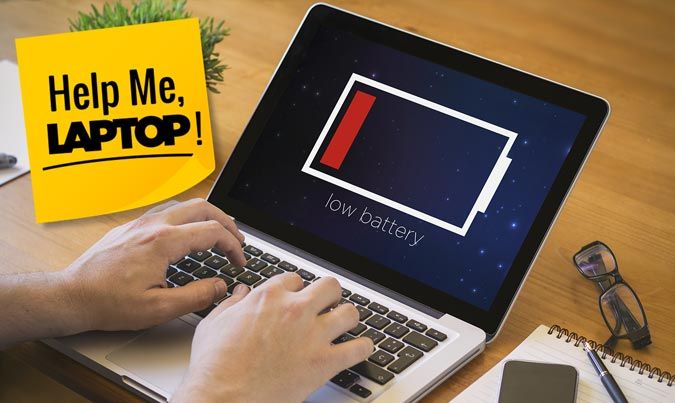Help Me, LAPTOP: Should I Buy a New Laptop or a New Battery?
Many people keep their laptops for four, five or even more years and still find them powerful and functional enough for everyday use. But what happens when your old laptop can't stay unplugged for very long? Unlike computer chips, LCD screens and hard drives, lithium-ion batteries -- the kind in all laptops -- have a very limited life span. Over the course of a couple of years, batteries start to hold less and less of a charge.

Forum user Mr. Crackers has a 5-year-old Sony VAIO laptop that he still enjoys using, but now it lasts only 1 hour on a charge. He's wondering if he should spend around $100 on a new battery, or pony up a lot more money for a brand-new laptop.
Deciding whether or not to replace an older but still good laptop is rarely an obvious choice. Here are some questions to ask when deciding whether to fix up your old system or buy a new one.
MORE: Laptops with the Longest Battery Life
1. What kind of new laptop can I afford?
If your old laptop was a premium device and you can only afford a budget notebook now, fix that old laptop. Though you can find serviceable new laptops for under $500, and even under $200, a brand-new budget system might not have the same good build quality, screen and keyboard as an older laptop that cost over $1,000 when it was new. And a new laptop with a Celeron or Core i3 CPU is not necessarily much speedier than an older notebook with a Core i5 or Core i7. Your 2012 MacBook Air is still better than a 2017 HP Stream 13.
2. Can I fix my old laptop?
Stay in the know with Laptop Mag
Get our in-depth reviews, helpful tips, great deals, and the biggest news stories delivered to your inbox.
Many laptops don't have a replaceable battery. If the problem isn't battery life but a broken keyboard or screen, you also need to see whether these parts are easy to swap out. Screens are extremely difficult to replace without breaking the chassis. The best way to find out what parts of your laptop can be replaced and how easily it would be to do so, is to look for the service manual on the manufacturer's site. If you can't find a service manual, you can search for online tutorials from other people who have swapped out the battery, screen, RAM or hard drive on your specific model. For RAM and storage drives specifically, you can use Crucial's Advisor tool to check whether you can upgrade and what type of components you need.
3. Is this an opportunity to get new features?
Perhaps your old laptop had a lower resolution screen than you'd like, or its performance just isn't good enough for all the apps you want to run today. Maybe its battery life wasn't that hot in the first place. A new laptop would not only offer better battery life, but also a host of other potential improvements. Five years ago, most laptops did not have touch screens, 4K panels or one-touch fingerprint readers and none of them had Windows 10 or USB Type-C/Thunderbolt 3 ports.
Ultimately, all of these questions come back to money. If you can afford to get the same class of laptop that you're replacing, get a new one. If you can't, look for a fix.
Credit: Shutterstock

